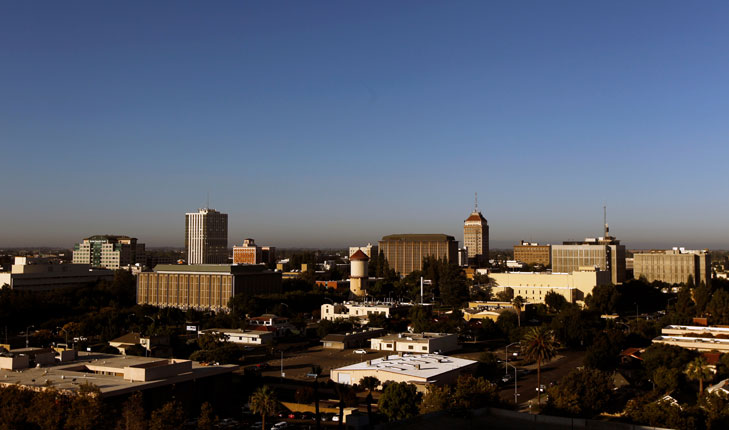
Dr. Amber Crowell
Sociology associate professor Dr. Amber Crowell is passionate about researching residential segregation, mapping inequalities, documenting community stories through data, public scholarship, and supporting faculty and student research at Minority Serving Institutions.
In order to continue her research, and help underserved communities, Crowell was awarded a $350,000-plus National Science Foundation grant to create a new project, “Mapping the Origins of Segregation using GIS Resources.” Digitized historical census data will be used to analyze long-term patterns and trends of residential segregation in urban areas, connecting present-day segregation patterns to their historical roots.
“I hope that what we build through the digital data platform and collaborative hub at Fresno State will continue to grow and support projects across institutions and disciplines long after this grant is over,” Crowell said.
The research is innovative and original. New methods of analysis and measurement, in addition to geographic information system (GIS) mapping will be used. More importantly, Crowell said, the project will build a publicly accessible digital data platform and collaborative hub at Fresno State where all project materials and products will be shared.
The research team will work with faculty and students at other Minority-Serving Institutions to support research and teach using these methods and materials, while also making it possible for them to contribute their own resources and materials to the site.
“In this way, we hope to crowdsource research and materials on specific communities where other faculty and student research is happening to help us build and connect community stories of neighborhoods and segregation.”
The grant will fund student research assistants and an open course for undergraduate and graduate students to learn how to use the methods and data to conduct independent research projects.
“I’m so excited about the opportunity for transformation that Dr. Crowell’s project provides for our students and for increasing research capacity and collaboration with other institutions,” said Dr. Elizabeth A. Lowham, dean of the College of Social Sciences at Fresno State. “The work to understand the patterns and implications of residential segregation in urban areas is critical in the work to create just communities where everyone can thrive.”
Through her research, Crowell said she found residential segregation continues to define communities across the United States with numerous social and economic consequences.
She also noted that prior research on historical segregation has been limited to using aggregate data that cannot sustain analyses of the locational attainments and household-level residential outcomes that shape segregation patterns.
The goal of the project is to fill the gap in knowledge by using new data sources and new methods for segregation analysis. In addition, the project will develop new GIS resources to document unique aspects that address long-standing research questions about historical segregation patterns in 1940 including: dispersed vs. concentrated patterns of segregation; back-alley “integration” of White and Black residents in Southern urban areas; and complex patterns of spatial separation of European immigrant groups.





